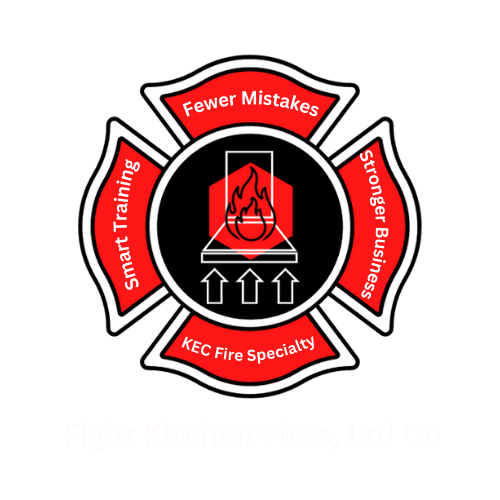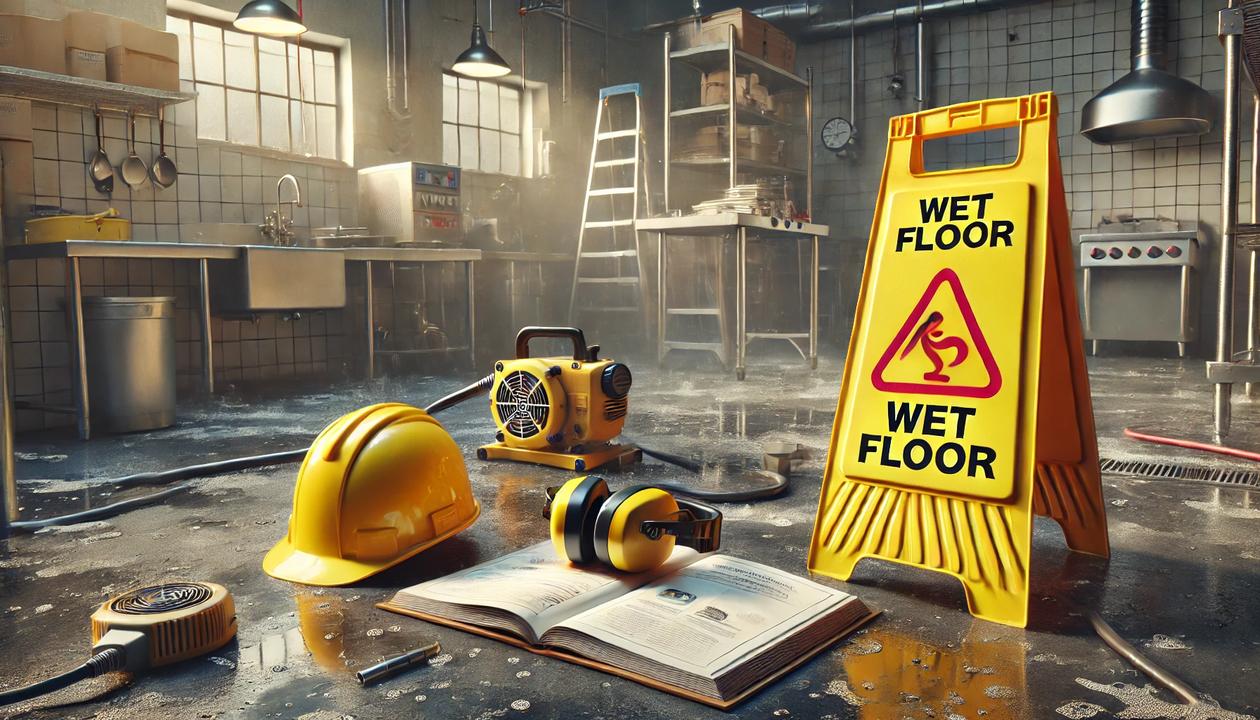Working in the kitchen exhaust cleaning industry presents unique challenges and dangers that professionals need to be aware of to ensure their safety and the safety of others. From navigating slippery surfaces to handling loud and high-pressure equipment, every step of the job requires careful consideration and training.
Whether you're working on roofs, using ladders, or dealing with the unpredictable environment of a commercial kitchen, safety should always be your top priority. In this blog, we’ll explore the most common hazards associated with kitchen exhaust cleaning and why a localized training plan is vital for every team.
The Hidden Dangers in Kitchen Exhaust Cleaning
Working on Roofs
Cleaning kitchen exhaust systems often involves working on roofs, which can be incredibly dangerous without proper training and equipment. The risks include:
- Falls: A significant hazard, especially when safety harnesses or guardrails are not used correctly.
- Weather Conditions: Wet or windy conditions can make roof work even more hazardous.
- Structural Weaknesses: Older roofs may have weak spots that can give way underfoot.
Using Ladders
Ladders are a common tool in kitchen exhaust cleaning but can pose serious risks if not used correctly:
- Incorrect Ladder Positioning: Setting up ladders on uneven or slippery surfaces can lead to falls.
- Overreaching: Extending beyond the safe range of the ladder can cause it to tip over.
- Lack of Stabilization: Not securing the ladder properly can lead to instability.
Wet, Slippery Floors
In a commercial kitchen setting, floors can quickly become wet and slippery, especially during cleaning:
- Slip and Fall Accidents: These are common and can result in severe injuries.
- Hidden Hazards: Grease and water on floors can make surfaces more slippery than they appear.
- Obstructions: Equipment and clutter can create tripping hazards.
Loud Equipment
Using high-powered cleaning equipment can be noisy, potentially damaging hearing and distracting workers:
- Hearing Loss: Prolonged exposure to loud noises can lead to permanent hearing damage.
- Communication Issues: Loud equipment makes it difficult to communicate, increasing the risk of accidents.
- Distracted Work: The noise can distract workers from their tasks, leading to mistakes.
High Pressure
Many cleaning tasks involve high-pressure equipment, which can be dangerous if not handled correctly:
- Injuries from Equipment: High-pressure water jets can cause serious injuries if they come into contact with skin.
- Property Damage: Improper use of high-pressure equipment can damage kitchen surfaces or exhaust systems.
- Unpredictable Reactions: High pressure can cause unexpected reactions, especially when used on surfaces with grease buildup.
The Need for a Localized Training Plan
Given these risks, it is clear that proper training is not just beneficial—it is essential. A localized training plan tailored to your specific working environment and team needs can make all the difference in preventing accidents and ensuring safety.
Why You Need Localized Training:
- Customized Safety Protocols: Training plans can address the unique challenges of your specific kitchen environments, such as equipment types and layout.
- Hands-On Practice: Practical, real-world scenarios in training help workers become familiar with their equipment and environment, reducing the risk of accidents.
- Regulation Compliance: Local training ensures that your team is up-to-date with the latest safety regulations and best practices.
Invest in Your Team’s Safety Today!
The best way to ensure the safety of your kitchen exhaust cleaning team is through comprehensive, localized training conducted by a fire safety professional. Not only does this protect your employees, but it also enhances your company’s reputation as a responsible and safety-conscious service provider.
Are you ready to prioritize safety and professional development in your team?
Check out our specialized kitchen exhaust cleaning training courses designed by experienced fire safety professionals. Equip your team with the knowledge and skills they need to stay safe and perform at their best.
Click Here to check out our course that covers these items and more!
By investing in proper training and following safety protocols, you can minimize risks and ensure a safe working environment for everyone involved. Don’t take chances with safety—make the commitment today and see the difference professional training can make!



Comments ()